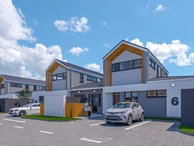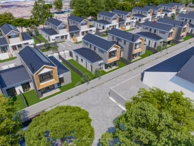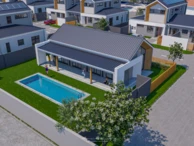 Continue with Facebook
Continue with Facebook
 Continue with Email
Continue with Email
 Continue with Facebook
Continue with Facebook
 Continue with Email
Continue with Email
 Sign up with Facebook
Sign up with Facebook
 Change filters
Change filters
 Requests
Requests




 4
4
 3
200 m²
3
200 m²

 4
4
 3
250 m²
3
250 m²

 4
4
 4
242 m²
4
242 m²


 4
4
 4
242 m²
4
242 m²

 4
4
 2
197 m²
2
197 m²

 4
4
 3
300 m²
3
300 m²

 4
4
 2
2
 4,000 m²
4,000 m²

 4
4
 4
300 m²
4
300 m²
4-bedroom houses for sale in Marlborough, Harare West, are priced at an average of $275,000, with listings starting from USD 135,000. These properties typically offer a median land area of 2,002 ㎡ and a median building size of about 250 ㎡, with some larger homes sitting on land up to 9,347 ㎡ and property sizes reaching 5,386 ㎡.
Many of these houses feature useful amenities such as water tanks, boreholes, and fitted kitchens. Most include a main en suite bathroom and are tiled throughout. Properties are commonly walled, providing added privacy and security for residents.
Marlborough is a well-established, middle-income suburb known for its vibrant community and convenient access to essential services. The area benefits from good road connections to Harare’s central business district. Residents enjoy proximity to Marlborough Shopping Centre, reputable schools like Marlborough High School, and healthcare facilities including Parirenyatwa Group Hospital. Nearby attractions include Harare Gardens and the National Sports Stadium, offering recreational and cultural opportunities. The neighborhood also has a variety of local restaurants and cafes, making it a practical and appealing choice for families and professionals seeking a balanced urban lifestyle.

 4
4
 2
600 m²
2
600 m²

 4
4
 2
2
 3,996 m²
3,996 m²

 4
4
 2
950 m²
2
950 m²

 4
4
 2
197 m²
2
197 m²

 4
4
 1
250 m²
1
250 m²

 4
4
 2
150 m²
2
150 m²

 4
4
 2
200 m²
2
200 m²

| Property Size | Avg. price |
|---|---|
| 3 bedroom (View 34 properties) | $255,000 |
| 4 bedroom (View 30 properties) | $265,000 |
| 5+ bedroom (View 14 properties) | $280,000 |
A Cadastral Affection Plan (CAP) is the legal blueprint for your property’s boundaries and zoning in Zimbabwe. Essential for 2026 construction permits
Maximize your property returns in 2026 by navigating the 30–50% yield premium of short-term rentals versus the passive stability of long-term leases.
Remote work is driving a 20% surge in home office demand and pushing Zimbabweans toward spacious, affordable peri-urban areas like Norton and Ruwa
Better roads and top schools aren't just perks they're equity engines boosting Zimbabwean property values by up to 20%
Master the Zimbabwean property market by avoiding the 30% hidden cost trap and ensuring rigorous legal due diligence. Our 2026 guide offers 7 essential tips